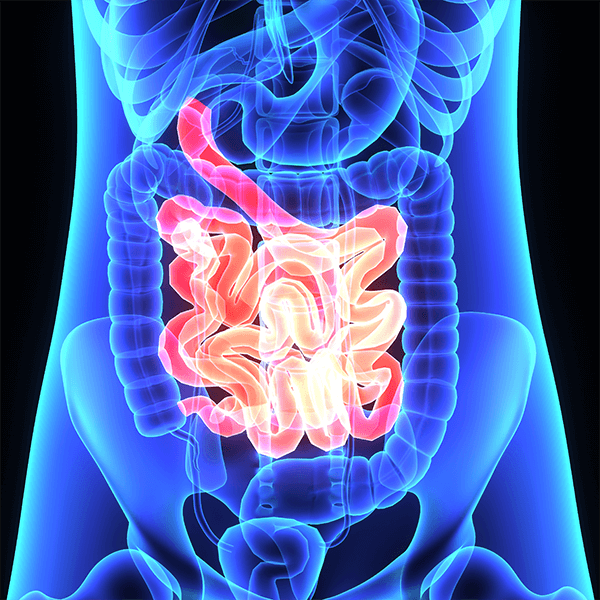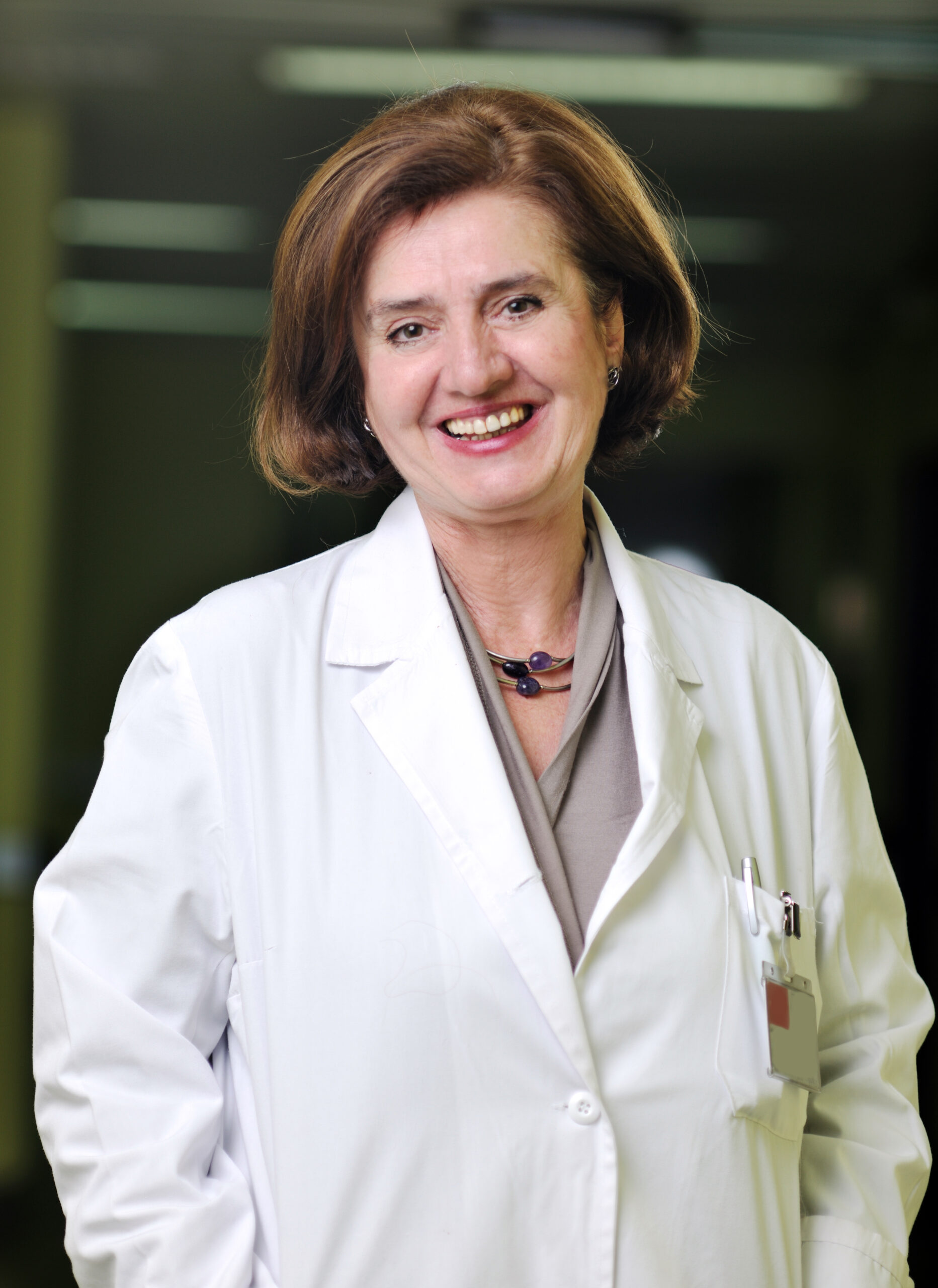Enteroscopy in Texas
What is an enteroscopy?
An enteroscopy is a procedure during which a lengthy, bendable tube is inserted through the mouth and into the body up the second portion of the intestine (the jejunum). The tube includes a light and camera, allowing the GI doctor to better evaluate the lining of the esophagus, stomach, and small intestine. Your doctor may use an enteroscopy to diagnose the underlying causes of GI concerns like bleeding, pain in the abdomen, and abnormal x-ray results. Contact our GI specialists at Texas Digestive Disease Consultants to learn more about requesting an enteroscopy in Texas.

What is an enteroscopy used for?
An enteroscopy is often requested to help determine the causes of disorders in the small intestine. Some of the most common disorders that might require an enteroscopy to diagnose include:
- Unusual x-ray results
- Abnormal tumors or growths in the small intestine
- Unexplained bleeding
- Unexplained diarrhea
While there may be alternative options to an enteroscopy, those will largely depend on the conditions being diagnosed. For the most part, enteroscopy is the most efficient way to assess and treat health problems in the upper gastrointestinal tract, particularly those in the second part of the small intestine. Your provider may order an x-ray procedure called an upper GI/small bowel follow-through to examine the upper GI tract instead. However, that is only a diagnostic procedure. If any abnormalities are found, surgery or an enteroscopy may be needed to treat them.
How should I prepare for my enteroscopy?
Your local Texas Digestive Disease Consultants provider will give you directions to help prepare for your enteroscopy. Most people can eat as they normally do the day before the procedure, but you should not take anything by mouth after midnight except for your medications. It is vital that you listen to your gastroenterologist’s instructions on that. You might also receive further directions about your medications. Generally speaking, you will be able to take them as normal, but special instructions may be provided for diabetics and patients taking blood thinners (including Coumadin®, Plavix®, warfarin, and aspirin).
What happens during an enteroscopy?
Your provider will request that you arrive at the endoscopy location in Texas 1 – 1.5 hours prior to your scheduled procedure so that there is adequate time to handle paperwork and any other preparations. Before the enteroscopy, you will change into a medical gown, and an intravenous (IV) catheter will be inserted into your arm to administer a sedative. You will be hooked up to various devices so the provider and staff can watch your heart rate, blood pressure, breathing, and oxygen levels both during and after the procedure.
After getting into the examination room, the staff will direct you to lie down on the exam table on your left side. The sedative will then be administered through the IV. A little bit at a time will be given to make sure you do not have an adverse reaction and that you receive only the necessary dose. Once you have been sedated, the endoscope will be carefully introduced through the mouth and gently pushed through the esophagus, stomach, and small bowel. The scope might inject a bit of air into your GI tract to aid the provider in the examination. Any liquid left in the upper gastrointestinal tract can be sucked out through the endoscope. If the exam finds any abnormalities, the provider may take steps at this time to treat them, including removing polyps, taking a biopsy, and managing bleeding. When the test is done, the provider will use the scope to remove as much of the remaining air and fluid as they can. The procedure takes 15 – 45 minutes to complete, depending on what your gastroenterologist finds.
When the enteroscopy is done, you will be taken to a separate recovery room to be watched over while the effects of the sedative fade. Most patients should be alert enough to leave the location within 45 – 60 minutes, though the length of time it takes to wear off depends on how much was administered and the individual’s reaction to the sedative. Prepare to have a ride home, as you will be not able to operate heavy machinery for the rest of the day. You should also not try to work, sign any important documents, or do anything too strenuous on the body until the next day. The majority of patients can eat, drink, and take medication as usual after they’re discharged, but your provider may give you personalized directions before you leave.
When the procedure is done, your local Texas Digestive Disease Consultants provider will explain the results of the exam to you. Because of the sedation, many patients won’t be able to recall this discussion. If feasible, bring another person with you who can sit in for this conversation. You will also be provided with a copy of the findings to take home with you. Your gastroenterologist should get back to you within one week with any biopsy results.
Is an enteroscopy safe?
Enteroscopy is widely viewed as a low-risk procedure, with problems occurring in less than 1% of individuals. The majority of these complications are not grave, but some may necessitate surgery and/or a stay in the hospital. A nurse will go over the consent form with you before the procedure to ensure you understand the potential risks. If you have any questions at this point, you can use this opportunity to discuss them with your provider.
You may experience reactions to the sedative used for the procedure, including discomfort in the vein used for the IV, difficulty breathing, allergic reactions, and effects on your heart and blood pressure. There may be some bleeding if the exam involves removing polyps, a biopsy, or dilating strictures. It is unlikely that any bleeding will be severe enough to require hospitalization or a blood transfusion. There is also a possibility of perforation (puncture) of the esophagus, stomach, or small intestine. These problems may be seen during the exam, or you may not notice them until later. Most perforation cases will result in surgery and hospitalization. However, remember that this is an unusual complication. Please let your provider’s office know immediately if you experience symptoms after the procedure such as bleeding, fever, or increased abdominal pain.
Like all medical tests, an enteroscopy is not flawless. There is a minor, recognized chance that disorders like cancer may be missed during the test. It is always vital to keep in contact with your gastroenterologist and let them know when you experience any new or lasting symptoms.
Enteroscopy FAQs
What should I avoid doing after my enteroscopy?
Post-enteroscopy, it’s important to not eat or drink until your doctor gives the go-ahead. You should adhere strictly to any medication instructions provided. It’s also advisable to steer clear of any heavy physical activities. If you encounter any intense abdominal pain, ongoing bleeding, or fever, please contact our office immediately.
Who is advised against undergoing an enteroscopy?
Enteroscopy might not be suitable for individuals with certain health conditions that heighten the risk of complications. Those with serious cardiovascular or respiratory diseases, uncontrolled bleeding disorders, or recent myocardial infarctions may face higher risks from both the sedation and the procedure itself. People with anatomical abnormalities or obstructions in their digestive system might also be advised to avoid this procedure. Always consult with your healthcare provider about your medical history and conditions to assess whether enteroscopy is a safe option for you.
How does an enteroscopy differ from an endoscopy?
The primary distinction between an endoscopy and an enteroscopy is the specific segment of the digestive system they examine. Both procedures utilize a flexible tube equipped with a camera, known as an endoscope. An endoscopy generally investigates the upper parts of the gastrointestinal tract, which include the esophagus, stomach, and duodenum. In contrast, an enteroscopy is specifically designed to explore the small intestine, a more difficult-to-reach area deep within the gastrointestinal system. Enteroscopy is particularly useful for investigating issues in the small intestine that other procedures like an endoscopy or colonoscopy may not adequately address.
